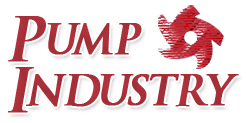Cedrik Neike, CEO Digital Industries andMember of the Managing Board of Siemens AG, and Kai Beckmann, CEO Electronics business and Member of the Executive Board of Merck, signed a Memorandum of Understanding (MoU) to expand cooperation in Smartfacturing (short for Smart Manufacturing) and outline the next steps for both companies. The MoU makes Siemens a preferred global supplier and strategic partner for Smartfacturing technologies, paving the way for transformative projects across Merck’s three business sectors.
“Healthcare, Life Science, and Electronics are at the core of improving lives and creating a more sustainable future. By combining Merck’s expertise in these vital sectors with Siemens’ cutting-edge hardware and software we are transitioning from a concept of mass production to a modular approach, saving time and increasing flexibility. With the MoU, we now aim to set new global standards for future production,” said Cedrik Neike. “Our collaboration, which spans over 145 years, is a powerful reminder that Merck and Siemens are more than just partners – we are longstanding allies in shaping the future.”
Kai Beckmann highlighted the importance of this partnership: “Our goal is to bring new products to market faster, more cost-effectively, and with a heightened focus on sustainability. Smartfacturing is essential to achieving this, and Siemens is the perfect partner for this journey. Their deep domain expertise and century-long familiarity with Merck uniquely positions them to rapidly implement and scale our vision.”
Merck drives an ambitious digital transformation agenda. At the core of this development is the digital transformation of manufacturing, Smartfacturing. The MoU introduces a centralized governance structure to streamline decision-making and a contractual framework to fast-track the partnership agreement, opening doors to new business opportunities and industry-leading advancements. Central to this partnership is the Siemens Xcelerator platform, which will provide Merck with cutting-edge software and hardware solutions, enhancing their digital transformation efforts. One key element is modular production based on the plug & produce principle. This approach allows individual process modules to be added, removed, or reconfigured with ease, significantly reducing the time to market, lowering investment costs, and cutting CO2 emissions. The collaboration seeks to drive innovation, reduce complexity, and create growth for both companies.
A recent example of successful collaboration is the modular manufacturing line for GMP (Good Manufacturing Practice) production at Merck, based on the new automation standard MTP (Module Type Package), which ensures that the facility meets the highest standards of quality and safety, guaranteeing that every product manufactured adheres to rigorous industry requirements, ultimately safeguarding patient health and reinforcing Merck’s commitment to excellence. Currently, Merck is utilizing this new automation technology for pharmaceutical and chemical production, but it can be applied to various production processes and manufacturing industries.



